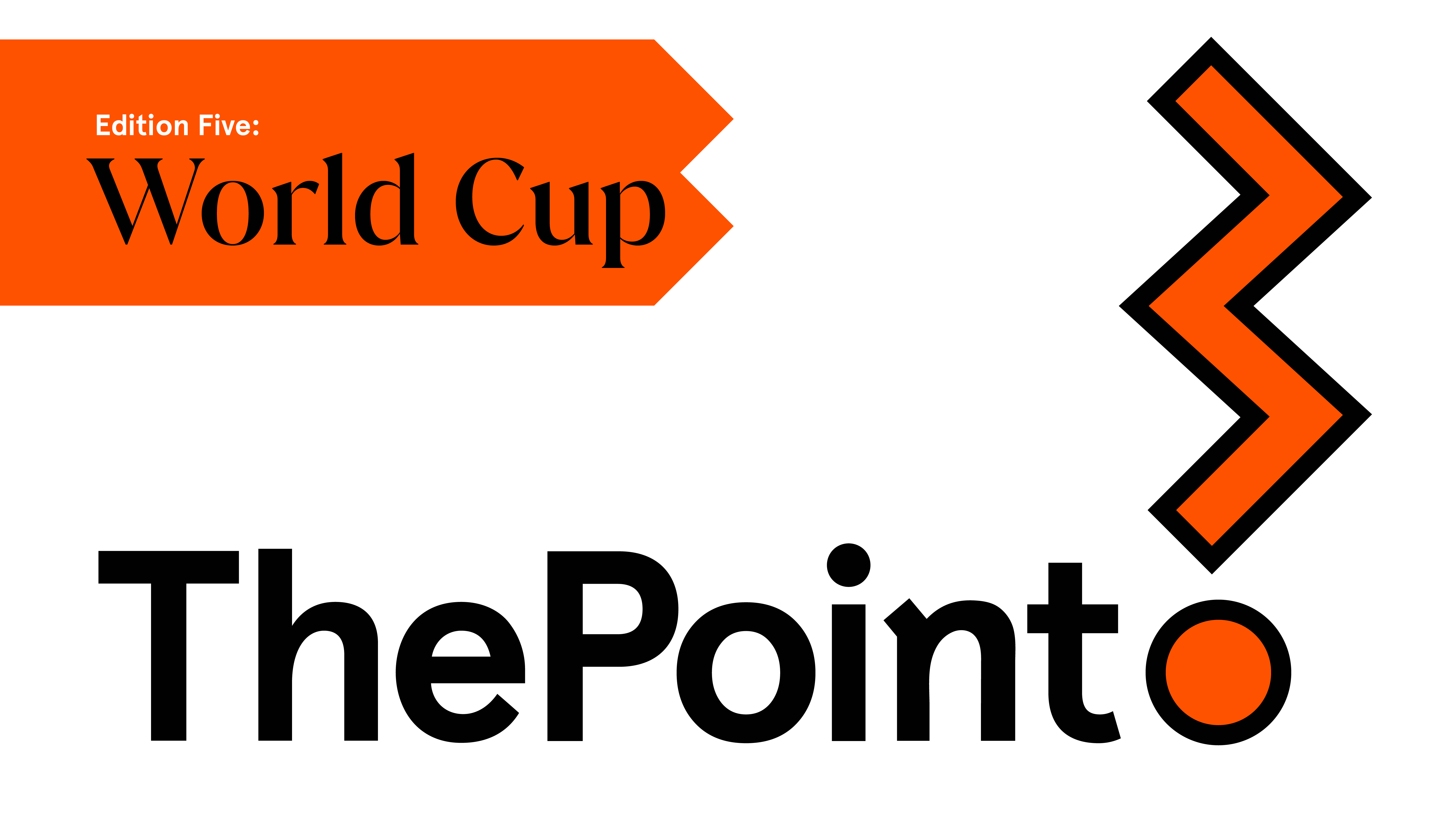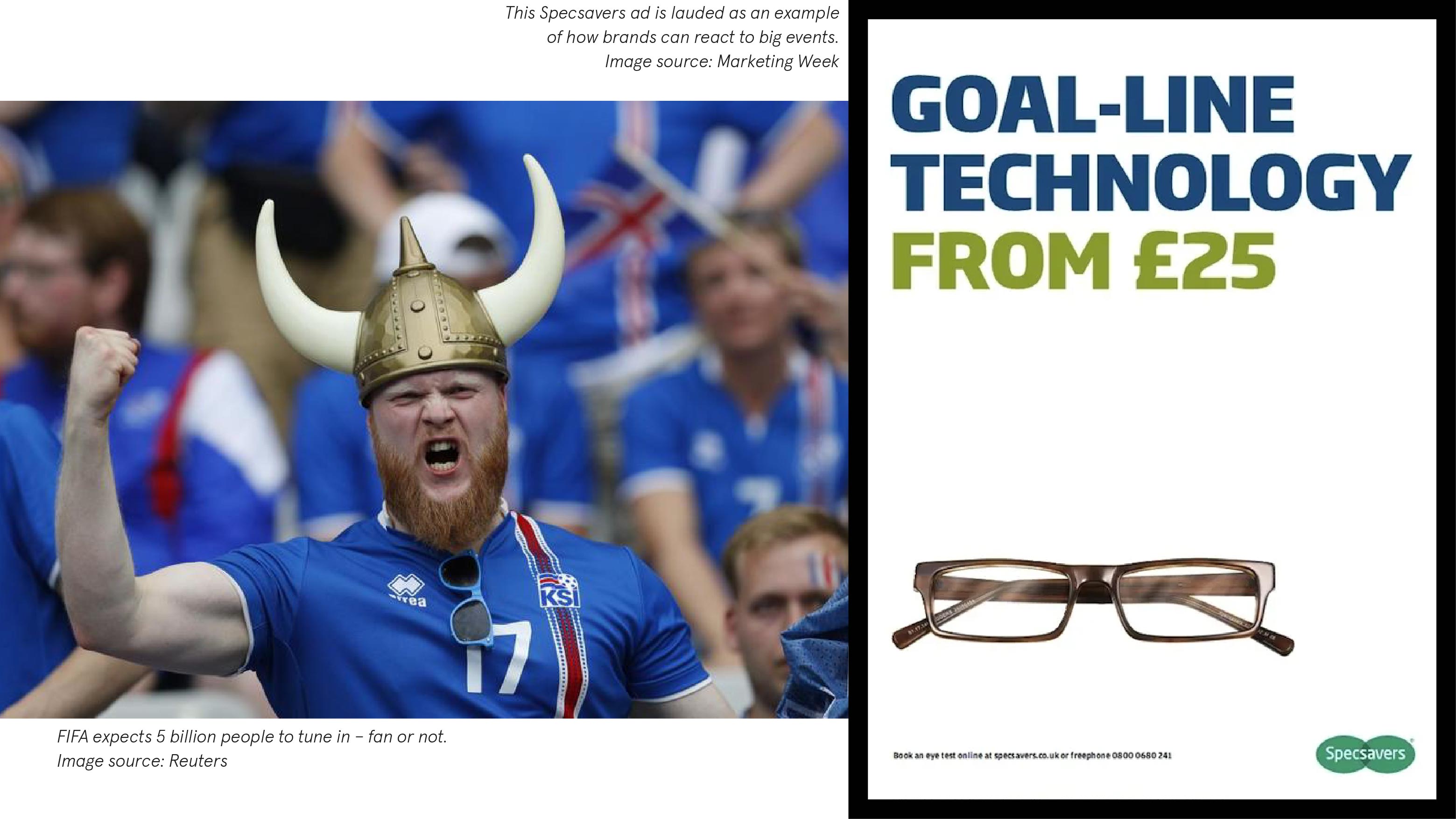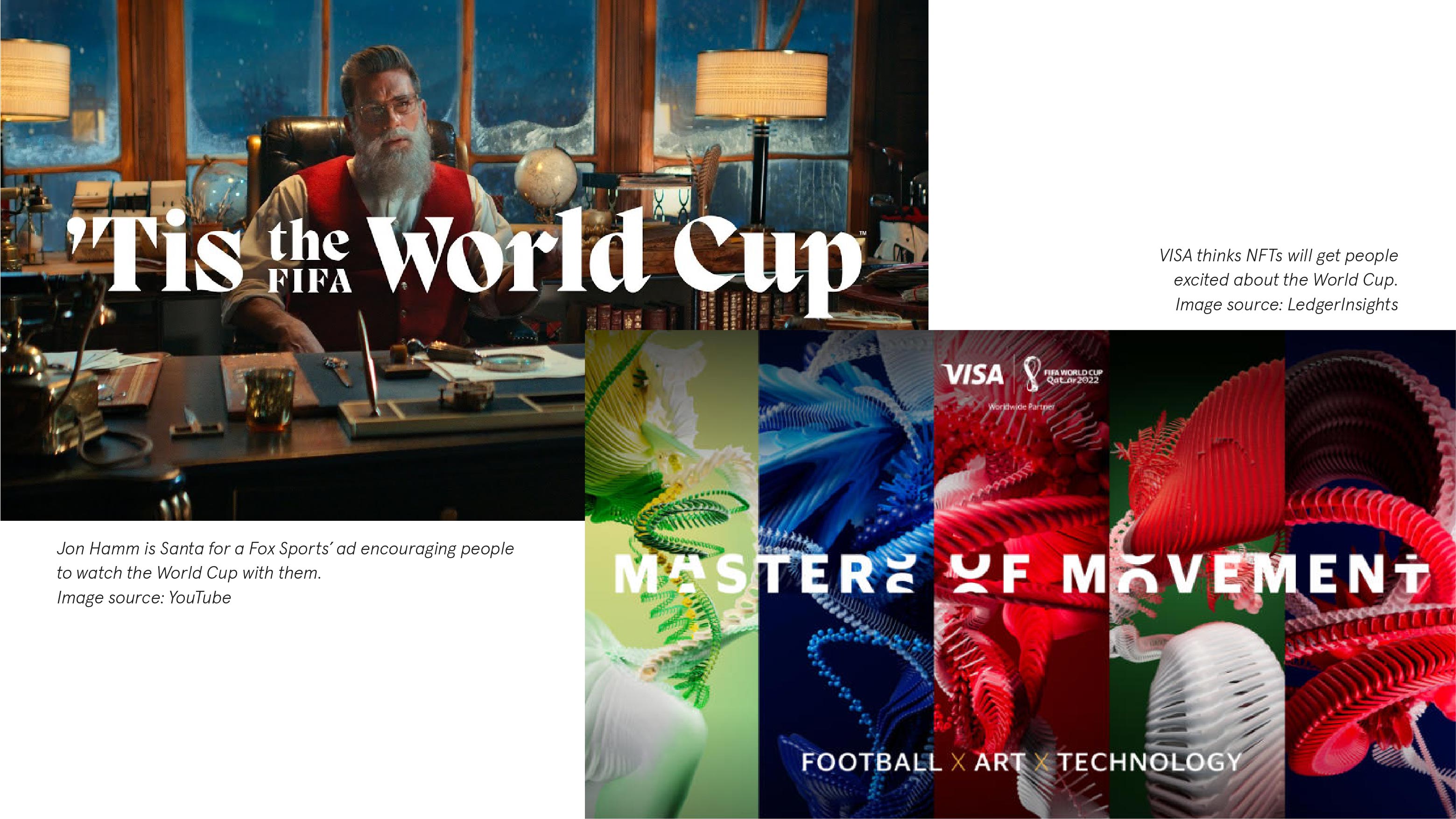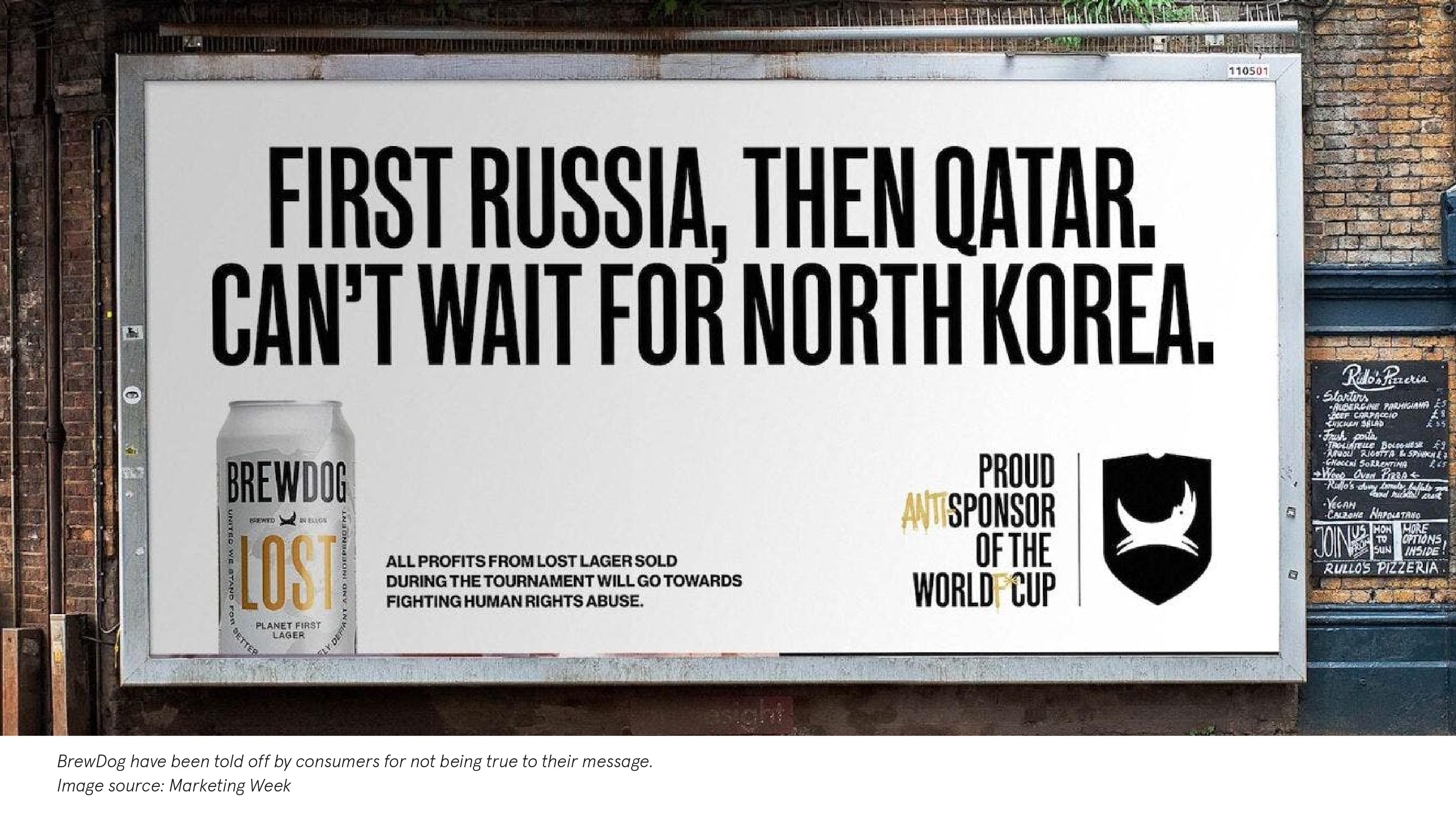Get to The Point with our monthly take on the hottest topics. This time, we explore the much-anticipated FIFA World Cup and what it means for culture, consumers and brands alike.
It's that time again. Marketers perk up at the potential jingle of cash registers. Hype and hope go into overdrive and emotion fills the air. No, not the John Lewis Christmas ad... but a one-time, winter edition of the FIFA World Cup, held in Qatar.



